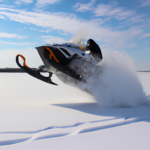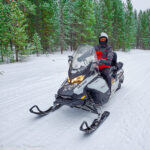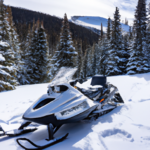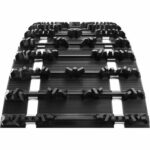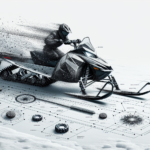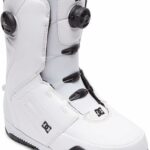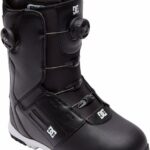Some may call it audacious while others term it a spirit of adventure, but the question on every thrill-seeking mothers-to-be’s mind is this – “Can You Snowmobile While Pregnant?” In this crucial piece, we explore and analyze the potential risks and exciting aspects of the rugged pastime snowmobiling when you’re expecting. This careful investigation, based on advice from health professionals and seasoned adventurers alike, will shed light on whether you can careen through the snowy white tracks with a baby on board. So brace yourselves, soon-to-be mothers, because this is your unavoidable pit stop before embarking on that snow-bound thrill.
Understanding Pregnancy and Physical Activities
Pregnancy is not just a time of incredible change but also of great caution. Every action taken can have direct implications on the growth and development of the unborn child. This includes physical activities that you might indulge in during this period.
Defining physical activity during pregnancy
Physical activity during pregnancy can be defined as any movement that uses your muscles and expends energy. It includes everything from day-to-day functions like washing dishes or vacuuming, to dedicated exercise regimens such as walking, swimming, or prenatal yoga classes. The aim of these actions is to maintain or sometimes enhance physical fitness and overall health, both for the mother and the unborn child.
Benefits and risks of physical activities in pregnancy
Staying active during pregnancy has numerous benefits. It can help manage weight gain, increase stamina for labor, reduce pregnancy discomfort, lower the risk of gestational diabetes, and improve overall mood and energy levels. However, there’s a caveat. Not every physical activity is recommended for expectant mothers since some could pose potential risks to the unborn child or the mother. For instance, activities that involve a high risk of falling, trauma, or pressure changes are generally off-limits.
Guidelines for physical activity during pregnancy
The American College of Obstetricians and Gynecologists recommends at least 20-30 minutes of moderate intensity exercise on most or all days for pregnant women with uncomplicated pregnancies. Despite this, it is important to consider your comfort level, physical capacity, and any guidance given by your healthcare provider. Remember, pregnancy is not the time to push your limits or aim for peak fitness goals.
Snowmobiling As Physical Activity
Snowmobiling, a common pastime in winter regions, is an exhilarating way to connect with nature and enjoy the snow. Like any outdoor physical activity, it can have its pros and cons.
Understanding Snowmobiling
Snowmobiling involves the use of a motor-powered vehicle designed to travel on snow. It requires strength, agility, and quick reactions. While scenic and thrilling, it is a physically demanding and risky sport due to factors like high speeds, rough terrains and unpredictable weather conditions.
Physical involvement and exertion in Snowmobiling
Snowmobiling requires constant control and responsiveness. It involves significant arm and core strength to steer the machine, balance, and react to the changing tracks quickly. It essentially serves as an intensive full-body workout.
Potential hazards of snowmobiling
While snowmobiling is fun, it comes with potential hazards like risk of collisions or falls, exposure to extreme cold, unpredictable terrain, and high-speed travels, especially during races. Irrespective of your expertise level, safety should always be a priority.
Possible Risks of Snowmobiling While Pregnant
Carrying an unborn child can make snowmobiling while pregnant more challenging and risky. Here are a few potential hazards to consider:
Risk of falls and injuries
The key concern of snowmobiling while pregnant is the risk of falls or collisions that could lead to injuries. Due to the large belly, maintaining balance can be tricky, and a minor mishap could harm the fetus.
Vibration and bumpy rides
Constant vibrations and jarring from the bumpy rides could pose a risk to the pregnant woman and her unborn child. There’s increased risk of placental abruption, where the placenta separates from the uterus.
Cold Weather Exposure
Staying warm is crucial during pregnancy to maintain a proper body temperature. However, snowmobiling often exposes the body to freezing temperatures and wind, which could lead to hypothermia.
Altitude Changes
Rapid altitude changes during a ride on hilly terrains can cause discomfort and complications like altitude sickness, which might affect the oxygen and nutrient supply to the fetus.
Impact of Snowmobiling on Pregnant Woman’s Body
Embracing the thrill of a snowmobile ride while pregnant could uniquely influence your body and the unborn baby.
Effect on cardiovascular system
Snowmobiling is strenuous and could cause heart rate fluctuations leading to excessive fatigue. Pregnant women already have an increased heart rate, and added exertion from the ride could overtax the cardiovascular system.
Impact on joints and balance
The growing belly alters a pregnant woman’s center of gravity, thereby affecting balance. Snowmobiling adds further strain on the joints, which are already stressed due to pregnancy hormones.
Influence on fetal development
The fetus is susceptible to pressure changes and vibrations. The constant jolting and shaking during a snowmobile ride may potentially disrupt fetal development, although scientific evidence to substantiate this is limited.
Consulting Healthcare Providers
If despite the risks, you’re contemplating snowmobiling while pregnant, it’s essential to seek professional medical advice.
Importance of consultation
Consulting a healthcare provider is crucial. They can gauge your pregnancy’s progression and your overall health to advise accurately on snowmobiling.
Situation-based advice
Advice can vary based on factors like your snowmobiling experience, the specific conditions where you’ll be snowmobiling, and your pregnancy’s particular details.
Possible restrictions and suggestions
Healthcare providers may recommend restrictions or modifications to the regular snowmobiling routine. They might suggest avoiding difficult terrains, limiting the ride’s duration, and ensuring a companion accompanies you.
Situational Analysis for Snowmobiling While Pregnant
The impact of snowmobiling during pregnancy can also vary depending on the pregnancy stage and specific medical history.
In the early stages of pregnancy
During the early stages, as the fetus isn’t large enough to influence balance significantly, a gentle ride may pose minimal risk. However, with morning sickness and fatigue being common in early pregnancy, the discomfort might outweigh the fun.
During the last trimester
As you approach full-term, snowmobiling could become more difficult and risky. With a larger bump, balance issues can increase, and the likelihood of fetal injury from a fall or collision becomes greater.
When you have previous pregnancy complications
If you’ve had pregnancy complications in the past, such as a history of miscarriage, premature labour, or a low-lying placenta, it’s best to avoid snowmobiling altogether.
Safer Alternatives to Snowmobiling While Pregnant
There are safer alternatives to snowmobiling that can provide both exercise and enjoyment during pregnancy.
Less risky winter activities
When it comes to winter sports, lower-impact and safer options include cross-country skiing or snowshoeing, which don’t involve high speeds, rough terrain, or potential for collision.
Indoor exercises
Indoor exercises that can keep you fit and healthy include activities like prenatal yoga, low-impact aerobics, Pilates, and strength training.
Water-based activities
Water-based exercises like swimming or aqua aerobics are excellent as they can help you maintain fitness without putting too much strain on your joints.
Tips for Being Safe If You Choose To Snowmobile
If you decide to snowmobile while pregnant, follow these safety tips:
Use of appropriate gear
Wearing protective gear including helmet, goggles, gloves, snowsuit, and boots is crucial to minimize injury risk.
Avoiding challenging trails
Stick to familiar, well-groomed trails and avoid challenging, steep terrains.
Having a company during the ride
Having a companion can provide assistance in case of an emergency, making the adventure safer.
Understanding the Signs of Danger
After each ride, monitor your body and baby’s movements to ensure everything is fine.
Recognizing abnormal discomfort
Experiencing abnormal discomfort after the ride such as severe abdominal pain, dizziness, or shortness of breath, requires immediate medical attention.
Physical signs requiring immediate medical attention
Physical signs like swelling of hands or face, less frequent fetal movement, or any sign of bleeding should never be ignored.
Importance of considering fetal movement
A continuous awareness of your baby’s movements is critical. Reducing patterns or sudden halt in movement can signal distress and should be checked with your healthcare provider immediately.
Post-Snowmobiling Pregnancy Care
After you finish your snowmobile ride, it’s essential to take steps to facilitate recovery and maintain optimal health.
Proper rest and recovery
Allow your body to rest and recover after the ride as it could be more tired than usual because you’re carrying an extra passenger.
Nutritional needs to take into account
Maintain a wholesome diet that caters to your increased nutritional needs during pregnancy. It is crucial for quicker recovery and maintaining energy levels.
Follow-up medical check-ups and tests
Regular check-ups are critical during pregnancy. If you’ve been snowmobiling, make sure you share this information with your healthcare provider in your subsequent visits so they can evaluate any potential impacts.
So, can you snowmobile while pregnant? The answer is subjective. It’s a decision to be made cautiously, considering your personal health, pregnancy condition, and medical advice. It’s crucial you prioritize safety and listen to the signals your body sends. Remember, pregnancy is temporary, and the thrill of speed will always be there, waiting for you.
- What Snowboard Bindings Should I Get? - January 23, 2024
- What Size Screws For Snowboard Bindings? - January 23, 2024
- How To Snowmobile On Water? - January 23, 2024




